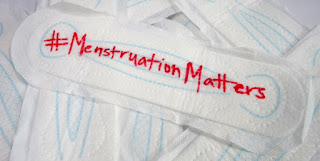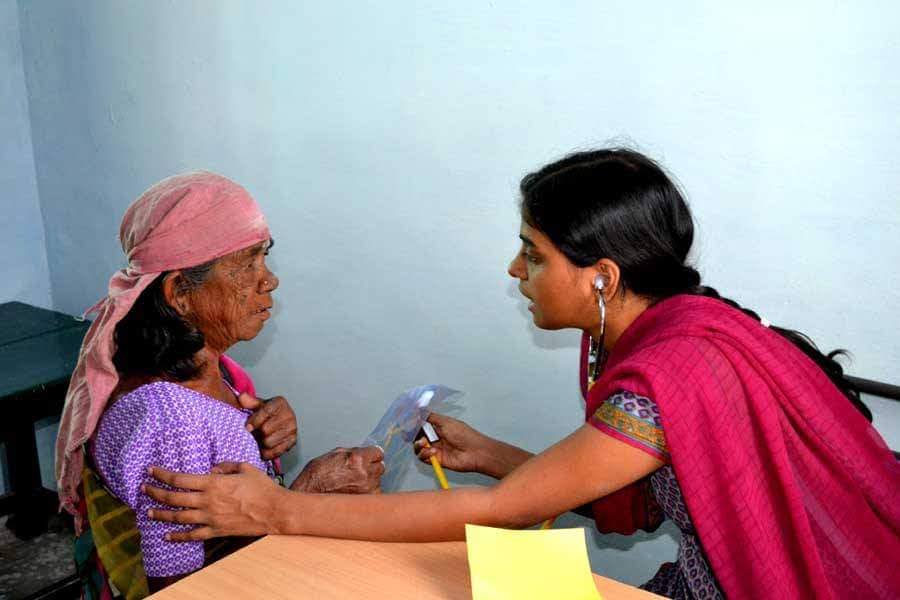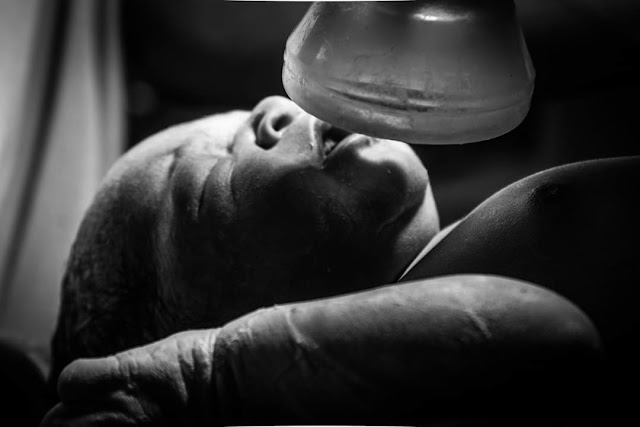Menstruation - I bleed, therefore I am.
I can recollect everything. That was the first time I saw so much of blood.
The school was about to re open after a week of Pongal holidays. My dad was waiting on his bike to drop me at school. I had my breakfast and carried my school bag and lunch box to the varandah. Before getting on rear seat of my father’s bike, I felt something odd. It wasn’t an urge to pee. It was involuntary as well. I felt a very strange discomfort, which couldn’t be articulated. I dropped my bags and hurried to the toilet behind the home, and that’s where I saw so much of blood.
Being a scary 12 year old, too many thoughts rushed into my mind. I even thought, whether I would die in the toilet itself. Me and my friends have spoken a little about, ‘Vayasuku varadhu’ (attaining puberty) in school. But my cognitive mind was pre occupied by a sense of fear and speculations. I remained in the toilet for sometime. I then realised that it’s not going to stop as it was none like usual nature’s call and I had no control over it.
I gathered my courage and came out of the toilet and called my mom. I called her and told her about the bleeding hungama. She told me not to worry and replied calmly to sit. She went inside and brought me a sanitary napkin.
What is it used for?
Again, another web of thoughts. When I was young, I first saw napkins in advertisements. And they usually show ink poured on two napkins and try to prove that one absorbs better. It was an era of ink pens. And I got convinced that, it was to pour ink without getting it spilled on the floor or table.
But then, I used to notice my mom keeping napkins in one corner of a shelf at home. And since she never used ink pens, I got a little confused. In schools, few girls who had elder sisters, told me that their sisters used it after puberty.( I didn’t know puberty back then,it was usually vayasuku varadhu).
Who would imagine, puberty was related to blood?
I couldn’t get the connection till my mother gave me a sanitary napkin. It was porous to touch and looked like cotton inside. I stared at her again.
What is to be done with this?
Most of the communication was non verbal that day. My mom realised my question with my stare and went inside and grabbed a underwear, to show how it is stuck. I thought, ’that’s really helpful’.
Apparently, my mom would have told my dad. He was sitting in the living room by the time I entered. My mom just told me, “You don’t have to go to school”. I nodded yes. Then she gave some milk and oil, mixed in a glass. It was a pathetic combination, but I drank it silently. The neighbours were visiting and my mom was also on phone, informing the relatives. In between, she would come and ask me if I feel uncomfortable. I was just sitting and watching tv.
“It will come every month. The bleeding.”
I suddenly felt empowered. When my mom told me this, I could imagine myself a master of a wholesome knowledge about puberty. At least, there was a deception that everything made sense. Though the reality was, I didn’t know anything.
“Do you want us to celebrate this, for you?”
I have seen pictures of my cousins and few friends celebrating puberty. New silk sarees, with jewellery, it was more like a mini-wedding without the groom. When my classmates return to school after their respective celebrations, they would look cheerful, shy and more vibrant with new jewellery. Who would say no to all these, when offered? I said I want one.
I had a week of holidays. Home was filled with relatives. Sweets and celebration all over. I felt like a celebrity, with gifts and complete attention. We had photographers to shoot the event, I changed my attire thrice, with make up and jewellery. It was my celebration.
Fast forward 12 years.
I was working as a junior resident at Tribal Health Initiative. A dear friend of mine asked me,”Do people really celebrate puberty? Did you also have a party?”
A disturbing question it was then. I didn’t how to answer. It was a yes for sure, but it had its own perceptions now.
What changed in these twelve years? Where did the girl who enjoyed this, disappear into?
Menstruation and it’s socio-physiology.
The whole night I spent thinking, about my monthly cycles. The physiology behind monthly bleeding was always a taboo. The denial of entry to temples, the question of purity, the constant efforts to make it concealed as if it doesn’t exist changes our own perception in dealing with the issues.
It’s normal. Nothing less or nothing more. It’s completely normal.
I bleed every month. So are my friends, my family and anyone I come across who is a woman. It is like how I breath, eat, laugh, cry, sleep and shout. There are no labels added for my menstrual capabilities. If you are uncomfortable and I’m looked down for my stained kurtas or my blatantly visible napkins in my room or talking aloud about my menstrual issues, I m very sorry to say that you are a judgemental spectator and nothing else.
It’s not a gender issue.
A normal menstrual cycle is absolutely essential for anyone to be born. Tagging this as a gender issue and trying to seek women empowerment is an obsolete idea, because for a child to be born, despite its gender, this is an essential physiological entity. It’s about human beings health, and not to any specific gender. Health education and reproductive health are primary needs of this society. Teachers who skip the biology lessons related to this, parents who tend to avoid conversations in front of or with children contribute to increase the stigma in every way possible.
It’s my right. To have a hygienic cycle. And not a privilege.
I know a number of families personally, who still practice a form of untouchability when a she in their family bleeds. She won’t be allowed to cook, not to sleep in the bedroom, not to enter temples, not to touch anyone, all just because she is a she. If she wants rest, let her ask for it. If she wants to be alone, let her be alone. It’s high time that we stop making decisions for her and stamp it on her heads. This is a total violation of human rights, but sadly without a voice.
Men should break the barriers and women should let them see the other side.
Unless, we take constant steps to understand the genders, we cannot have a healthy relationship. But what efforts do we make for the betterment of interactions? Relationships are not only about spouse, it’s about your mother, sister, friend, boss, neighbour, child and anyone who bleeds. It’s time to have conversations at home. It’s time to make our brother, father, husband, friend, son anyone who is not a female, to understand.
We need to break the taboo. Together. Collectively.
Now I’m not proud of the puberty celebration I had. I don’t regret also. I spoke to my friend who asked me the question, the next day. He said, "I haven’t heard from any girl about menstruation like this".
Menstruation is nothing to be proud of nor to be frowned upon. It is neither a blessing nor a curse. As I said, it’s completely normal. I hope we listen to more menstrual stories, comfortably.



We all have listened to the first period stories of our buddies! No doubt very empowing and feels like family!
ReplyDeleteI hope one day all the tabboo is a thing of past!
Things we make so much air about at times ... But when u really compared with other essential and normal things in women 's life , it's then we realize the needless attempts to glorify or shun talk of menstruation. I laud your efforts for normalising it.
ReplyDeleteI wish we would talk about this as a normative issue in families, before menarche and not after it starts, because its intensely bewildering.
ReplyDelete